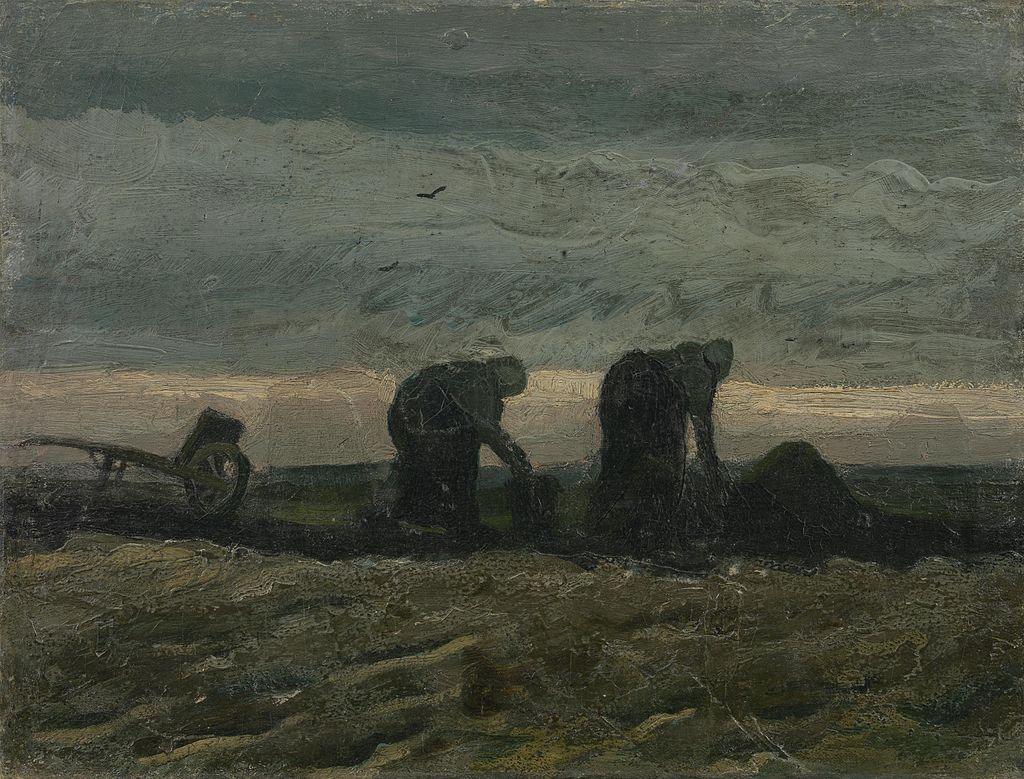Description
The painting "Two Peasant Women Chopping Peat" by Vincent Van Gogh is a masterpiece depicting the rural life of the time in which it was created. This work is a perfect example of the Post-Impressionist artistic style, characterized by the use of bright colors and the technique of short, visible brushstrokes.
The composition of the painting is very interesting, as Van Gogh uses the technique of perspective to create depth in the image. The two peasant women are situated in the foreground, while the landscape behind them stretches towards the horizon. The position of the peasant women and the way they are chopping the peat suggest that they are working together in harmony.
Color is another outstanding aspect of this work. Van Gogh uses a bright, saturated color palette to depict nature and rural life. The green and brown tones of the peat and the landscape contrast with the red and blue dresses of the peasant women, creating a vibrant image full of life.
The history of the painting is also very interesting. It was created in 1885, during the period when Van Gogh lived in Nuenen, a small village in the Netherlands. During this time Van Gogh became interested in rural life and began to paint scenes of everyday peasant life.
A little known aspect of this work is that Van Gogh painted it in a single day. According to records, he began work on the painting in the morning and finished it by the end of the day. This demonstrates the artist's skill and technique, as well as his ability to capture the essence of rural life in a single image.

